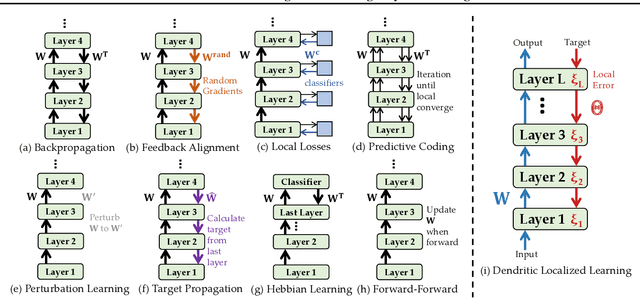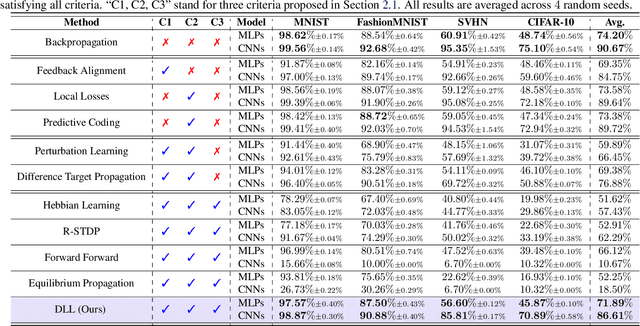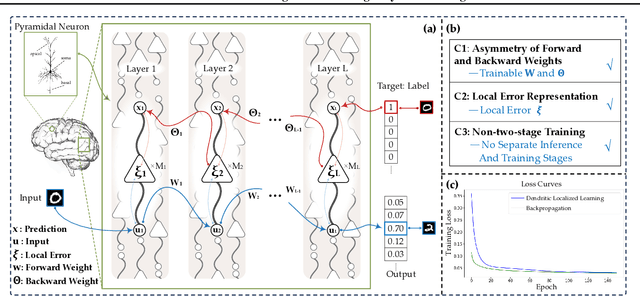Dendritic Localized Learning: Toward Biologically Plausible Algorithm
Paper and Code
Jan 17, 2025



Backpropagation is the foundational algorithm for training neural networks and a key driver of deep learning's success. However, its biological plausibility has been challenged due to three primary limitations: weight symmetry, reliance on global error signals, and the dual-phase nature of training, as highlighted by the existing literature. Although various alternative learning approaches have been proposed to address these issues, most either fail to satisfy all three criteria simultaneously or yield suboptimal results. Inspired by the dynamics and plasticity of pyramidal neurons, we propose Dendritic Localized Learning (DLL), a novel learning algorithm designed to overcome these challenges. Extensive empirical experiments demonstrate that DLL satisfies all three criteria of biological plausibility while achieving state-of-the-art performance among algorithms that meet these requirements. Furthermore, DLL exhibits strong generalization across a range of architectures, including MLPs, CNNs, and RNNs. These results, benchmarked against existing biologically plausible learning algorithms, offer valuable empirical insights for future research. We hope this study can inspire the development of new biologically plausible algorithms for training multilayer networks and advancing progress in both neuroscience and machine learning.
 Add to Chrome
Add to Chrome Add to Firefox
Add to Firefox Add to Edge
Add to Edge